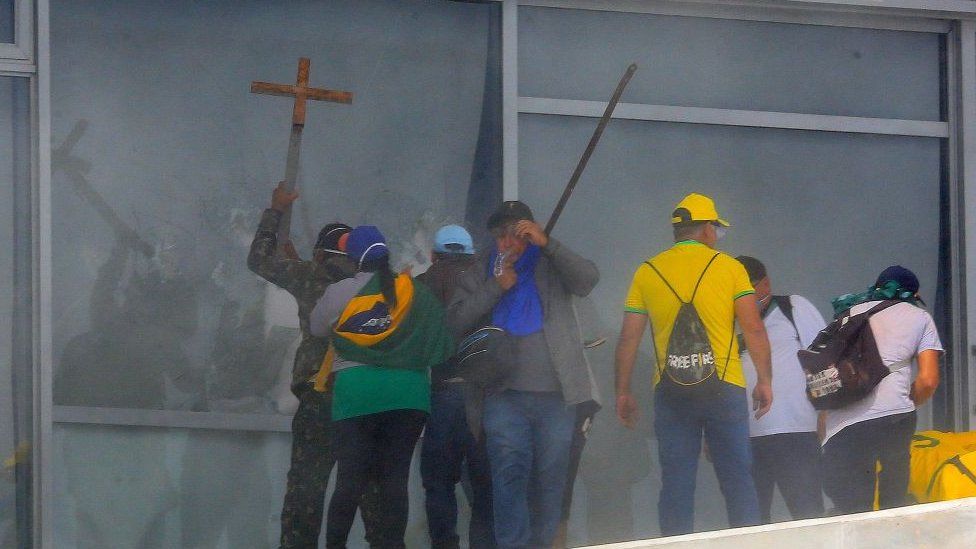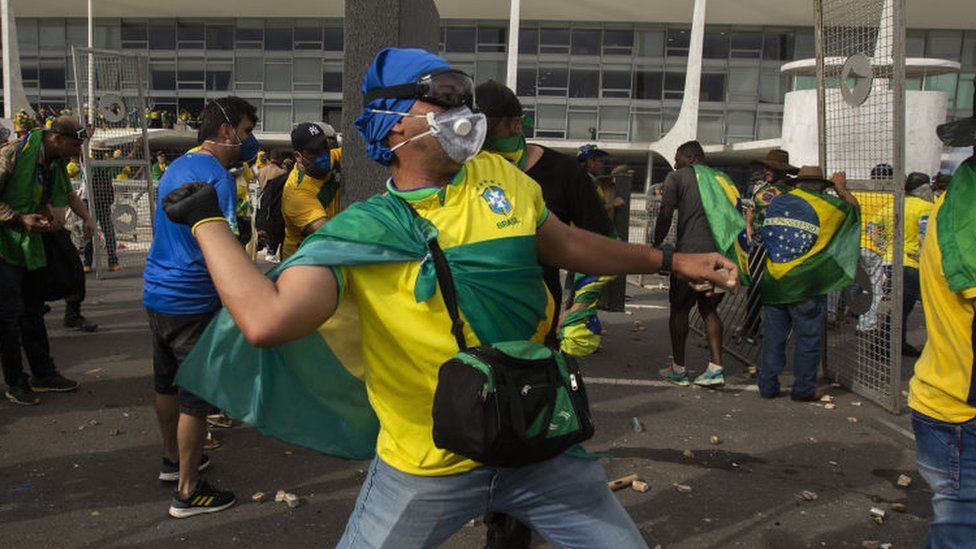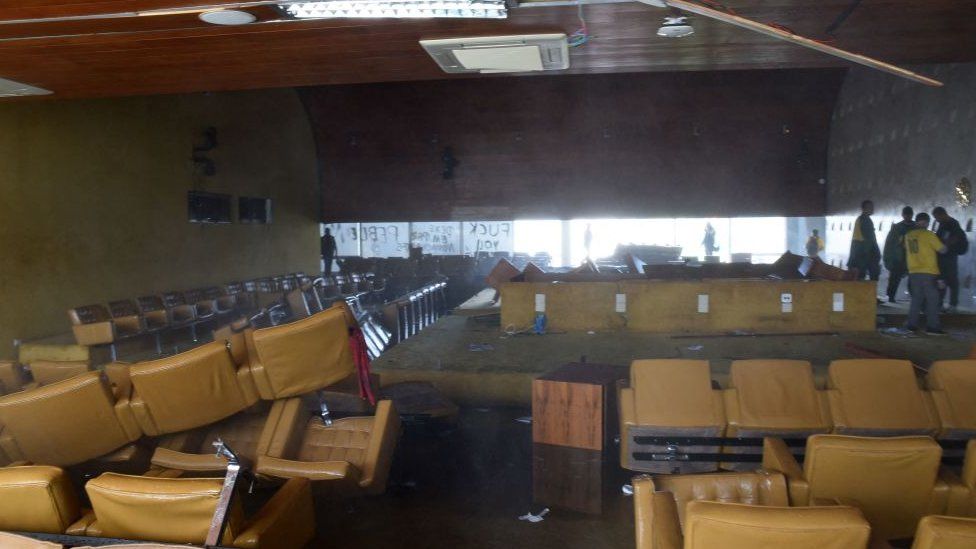 Getty Images
Getty ImagesThe scenes in Brasilia looked eerily similar to events at the US Capitol on 6 January two years ago – and there are deeper connections as well.
“The whole thing smells,” said a guest on Steve Bannon’s podcast, one day after the first round of voting in the Brazilian election in October last year.
The race was heading towards a run-off and the final result was not even close to being known. Yet Mr Bannon, as he had been doing for weeks, spread baseless rumours about election fraud.
Across several episodes of his podcast and in social media posts, he and his guests stoked up allegations of a “stolen election” and shadowy forces. He promoted the hashtag #BrazilianSpring, and continued to encourage opposition even after Mr Bolsonaro himself appeared to accept the results.
Mr Bannon, the former White House chief strategist, was just one of several key allies of Donald Trump who followed the same strategy used to cast doubt on the results of the 2020 US presidential election.
And like what happened in Washington on 6 January 2021, those false reports and unproven rumours helped fuel a mob that smashed windows and stormed government buildings in an attempt to further their cause.
‘Do whatever is necessary!’
The day before the Capitol riot, Mr Bannon told his podcast listeners: “All hell is going to break loose tomorrow.” He has been sentenced to four months in prison for refusing to comply with an order to testify in front of a Congressional committee that investigated the attack but is free pending an appeal.
Along with other prominent Trump advisers who spread fraud rumours, Mr Bannon was unrepentant on Sunday, even as footage emerged of widespread destruction in Brazil.
“Lula stole the Election… Brazilians know this,” he wrote repeatedly on the social media site Gettr. He called the people who stormed the buildings “Freedom Fighters”.
Ali Alexander, a fringe activist who emerged after the 2020 election as one of the leaders of the pro-Trump “Stop the Steal” movement, encouraged the crowds, writing “Do whatever is necessary!” and claiming to have contacts inside the country.
Figures involved in January 6 are currently applauding what’s happening in Brazil pic.twitter.com/oRRplmHKxg
— Ben Jacobs (@Bencjacobs) January 8, 2023
Bolsonaro supporters railed online about an existential crisis and a supposed “communist takeover” – exactly the same type of rhetoric that drove the rioters in Washington two years ago.

Casting doubt on voting systems
The links between Mr Bolsonaro and the Trump movement were highlighted by a meeting in November between the former president and Mr Bolsonaro’s son at Mr Trump’s Florida resort.
During that trip, Eduardo Bolsonaro also spoke to Mr Bannon and Trump adviser Jason Miller, according to reports in the Washington Post and other news outlets.
As in the US in 2020, partisan election-deniers focused their attention on the mechanisms of voting. In Brazil, they cast suspicion on electronic vote tabulation machines.
A banner displayed by the rioters on Sunday declared “We want the source code” in both English and Portuguese – a reference to rumours that electronic voting machines were somehow programmed or hacked in order to foil Mr Bolsonaro.
6/Pro-#Bolsonaro rioters demanding “source code.”
Incredibly familiar.
Notably, some of their banners are in English.
Interesting.
Who exactly has been advising #Brazil’s ex-president? pic.twitter.com/5vSNETsfqY
— John Scott-Railton (@jsrailton) January 8, 2023
A number of prominent Brazilian Twitter accounts which spread election denial rumours were reinstated after the election and acquisition of the company by Elon Musk, according to a BBC analysis. The accounts had previously been banned.
Mr Musk himself has suggested some of Twitter’s own employees in Brazil were “strongly politically biased” without giving details or evidence.

Some of Mr Trump’s opponents in the US were quick to put the blame on the former president and his advisers for encouraging the unrest in Brazil.
Jamie Raskin, a Democratic Party member of the US House of Representatives and a member of the committee that investigated the Capitol riot, called the Brazilian protesters “fascists modeling themselves after Trump’s Jan. 6 rioters” in a tweet.
The BBC attempted to contact Mr Bannon and Mr Alexander for comment.
With reporting from the BBC’s disinformation team
